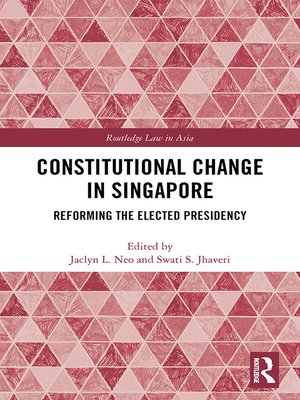Constitutional Change in Singapore
ebook ∣ Reforming the Elected Presidency · Routledge Law in Asia
By Jaclyn Neo

Sign up to save your library
With an OverDrive account, you can save your favorite libraries for at-a-glance information about availability. Find out more about OverDrive accounts.
Find this title in Libby, the library reading app by OverDrive.



Search for a digital library with this title
Title found at these libraries:
| Library Name | Distance |
|---|---|
| Loading... |
Once a ceremonial position modelled after the constitutional monarchy in the United Kingdom, the office of the President of Singapore was transformed from an appointed to an elected one in 1991. As the head of state, but not the head of government, the elected President was to have additional discretionary powers involving the spending of financial reserves, appointment of high-ranking public servants, and certain ministerial powers to detain without trial. In 2016, a constitutional commission was convened to consider further reforms to the office and the elections process. This book explores Singapore's presidency, assessing how well it has functioned, discussing the rationales for an elected presidency, and evaluating the constitutional commission's recommendations for reforms, including the need for minority representation in the office. In doing so, the book provides important reflections on how the constitutional reform process raises crucial questions about the rule of law and the practice of constitutionalism in Singapore.







